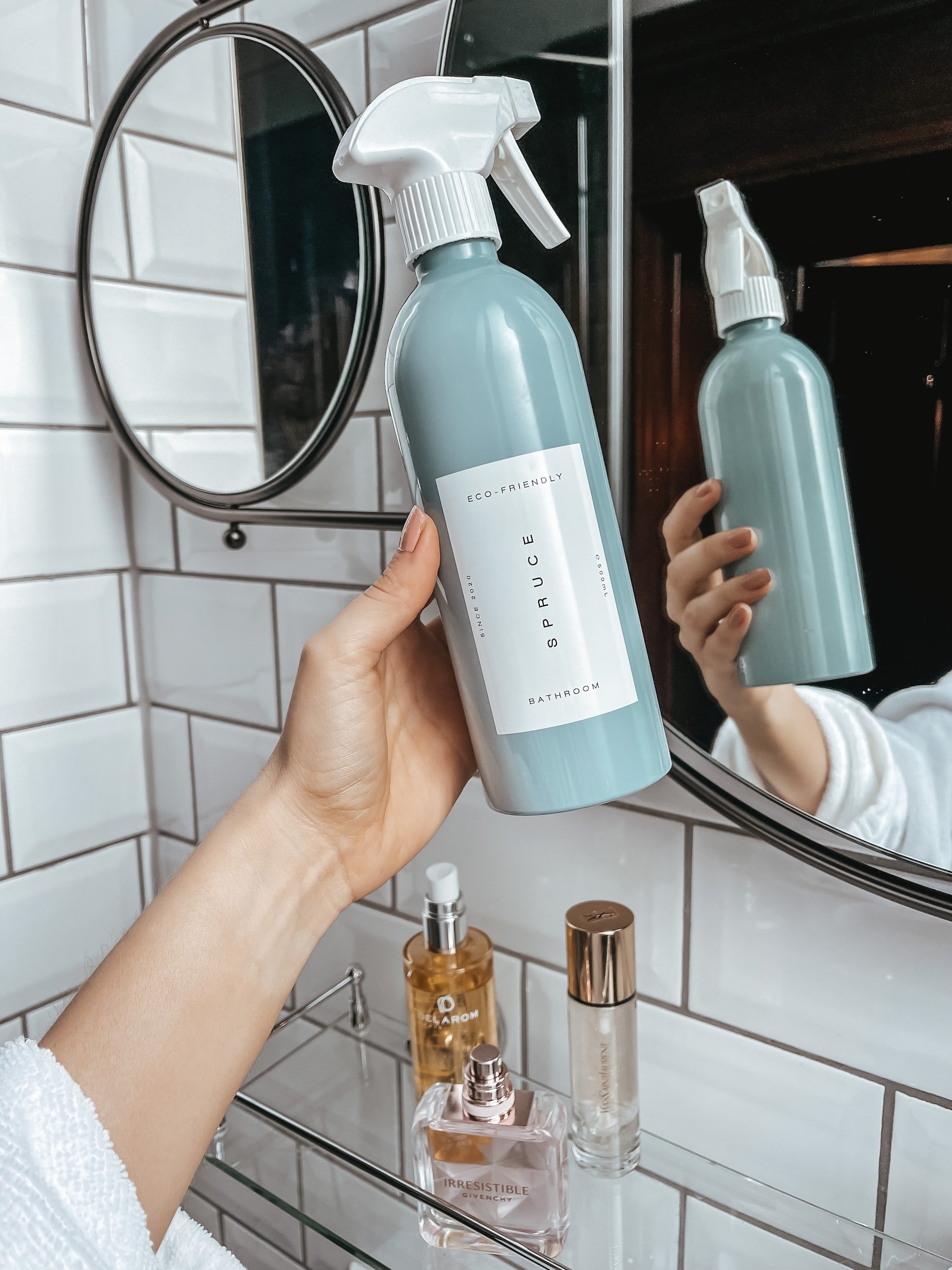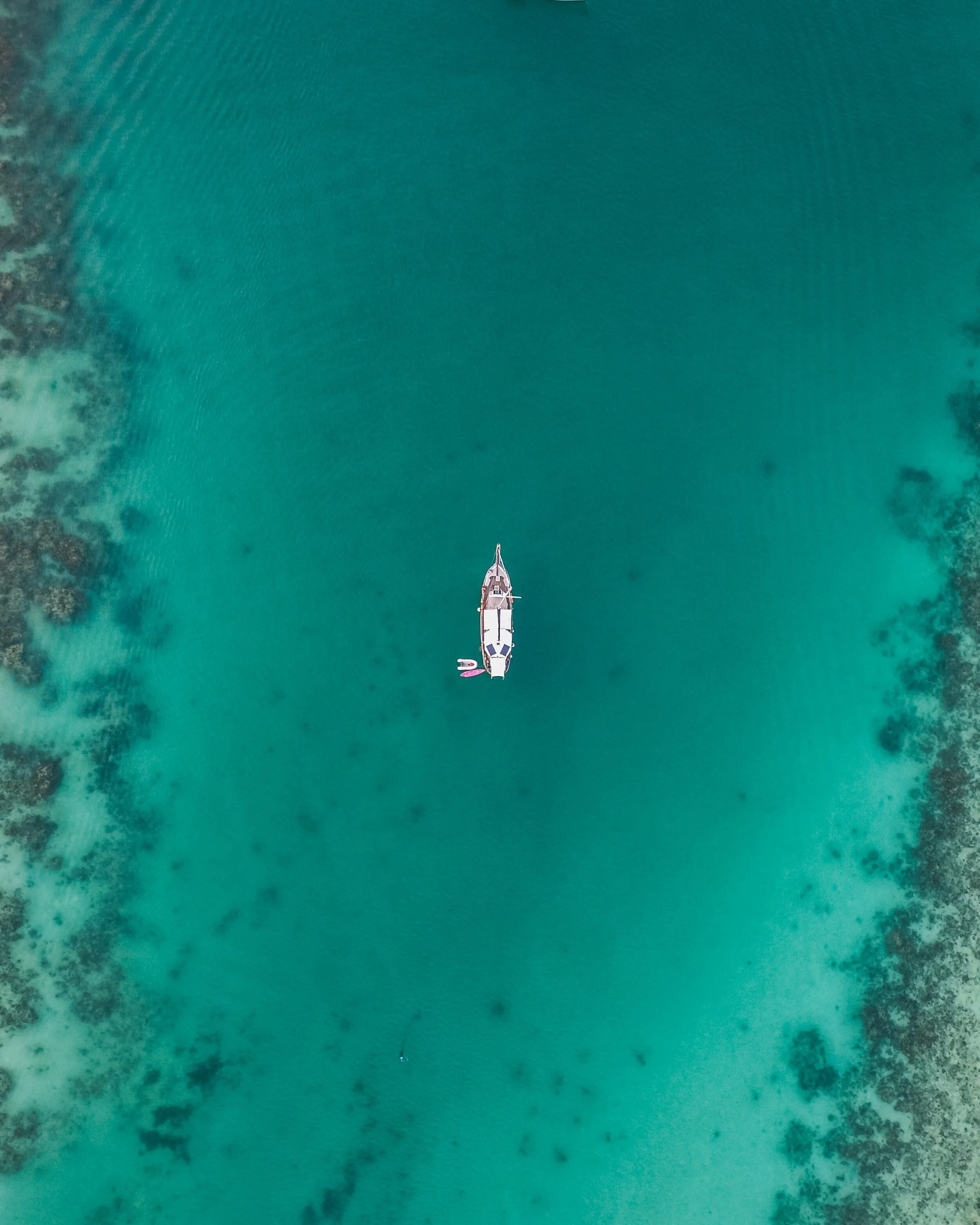
Consider your impact.
Choose best practices and make consumer choices that help sustain a healthy planet. Download our guides to see how you can be part of the solution.
Choose your products carefully
Common household and personal care products (PCPs) that we use everyday can cause detrimental effects to marine ecosystems. Harmful chemicals that are pervasive in products such as cleaning solutions and hair and skincare products enter sewage or wastewater systems after use, which eventually lead to our oceans.
-
Avoid laundry detergents containing phosphates, as these can cause an overabundance of nutrients in waterways and the ocean and trigger algae blooms.
Refrain from using chlorine bleach, which reacts with other minerals in water to create dangerous toxins that can linger for decades.
Discontinue using antibacterial soaps and cleaners that contain triclosan, which alters the anatomy of fish and algae.
Choose household products that are made with biodegradable plant-based ingredients and are plastic free.
-
Sunscreen ingredients such as oxybenzone and octinoxate can be extremely toxic to fish, corals, and marine mammals. Cover up with protective clothing and seek shade as much as possible, and when using sunscreen choose mineral sunscreens that contain non-nano zinc oxide as its only active ingredient.
Avoid single use, non-recyclable, and non-biodegradable products such as makeup remover wipes and sanitary napkins as these items can generate microplastics that linger in the environment for hundreds of years.
Plastic microbeads found in toothpaste and exfoliating scrubs enter the marine environment and are ingested by aquatic life. Choose products containing only biodegradable ingredients.
Popular branded shampoos often contain parabens, phthalates and ammonium chloride which are toxic to marine life. Instead, opt for shampoos that are made from natural minerals, herbal extracts, castor oil, coconut oil, and olive oil which are all non-toxic.
Manage coastal inputs
As a property owner or manager, strive to minimize or eliminate your input of nutrient-rich and chemical-based products which can runoff into the ocean. These pollutants can cause disease, stimulate algae-blooms and lead to an imbalance in the reef’s animal composition.
-
Choose native plant species that require minimal water and soil additives
Choose naturally derived fertilizers like compost and manure and apply only when necessary and at the recommended amount
Don't apply fertilizer before rainy days, and avoid applying in areas directly adjacent to natural waterways, drainage areas, beaches, and steep drops to the ocean
Do not over-water lawns and garden
Securely store unused fertilizers and properly dispose of empty containers
-
Avoid inappropriate designs, and place septic systems as far away from waterways and coastlines as possible
Update aging infrastructure and practice regular maintenance to avoid system failure
Avoid overloading with too much wastewater in too short a period of time
Be a responsible boater
-
Always use moorings if available and safe to do so
Anchor in designated sandy bottom areas
Never anchor in areas with dense or patchy coral reefs and/or seagrass beds
-
Never dump black or grey water inshore, store in tanks and dispose of responsibly
Litter should never be thrown in the ocean, always dispose in garbage facility
-
Lower speeds in shallow areas to minimize wake
Be mindful of your boat’s impact on the soundscape of the marine environment, please turn off motor when parked or moored
As the captain or owner of a pleasure craft or fishing vessel, take the right precautions to ensure you are not polluting or damaging the underwater environment.
Use your buying power
In the fight against climate change, habitat destruction and overexploitation, your purchasing power can make all the difference. Buy responsibly to buy us time.
-
Buying fish from a sustainable source is an important part in supporting reef health. Always:
Be aware of local closed seasons, and buy fish when its legal to do so
Buy from a sustainable fish monger, or directly from the fisherperson. Ask them what their fishing method is, and chose line caught or spearfished over gill nets and trawls
Steer away from important reef herbivores like parrotfish (also known as chub) and surgeon fish or doctor fish
Refer to a sustainable food guide when buying imported fish
-
Buying locally grown and produced goods limit your carbon footprint by cutting the emissions necessary to transform and transport goods. Support brands that have high corporate social responsibility and environmental standards by looking for certifications.
-
Offsetting your carbon footprint by buying carbon credits (such as after travelling) is a great way to support carbon capture and ecosystem conservation programs worldwide. We recommend supporting programs through certification bodies such as Verra and The Gold Standard.
A few other tips...
Consume less.
Waste and carbon emissions can be avoided by simply buying less, especially single use goods that are non-biodegradable such as plastic bottles, take-away containers, and bags, or products with short lifespans such as fast-fashion or disposable electronics.
Invest in a sustainable future.
Invest in businesses that are creating products and offering services that contribute to the sustainable future we're working towards.
Talk about it.
If you’re working to reduce your negative impact on the environment, please share your experiences with others and encourage them to think critically about their choices.




